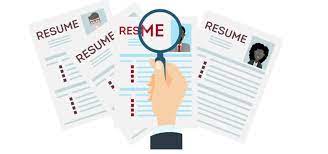A resume is an important instrument in the job-seeking process, providing an outline of your professional skills and experiences. It provides potential employers with an overview of your work experience, qualifications, and accomplishments. Making a professional resume requires careful attention to detail, as it can significantly impact your chances of getting an interview. Knowing the most important elements of a Resumeand how to effectively present them can make a huge difference to your career search’s success.
At its core, the resume should begin with a concise and convincing summary statement. This section, often called a professional summary or an objective statement, gives a brief overview of your career goals and highlight your most relevant abilities and experience. A strong summary will set an example for your rest of your resume. It also conveys to employers what makes you a great candidate for the position.
Following an overview, next important section is the work experience. This part of the resume should list your previous employment by reverse order. It should begin with your most recent position. For each job, include the company name as well as your name, job title as well as the dates you worked for. It is important to give specific information about your duties and accomplishments in each position by using action verbs and tangible results to show the impact you have made.
Education is another key component of the resume. Include details about your education, qualifications, and relevant coursework. Include your most recent or relevant accomplishments in your education first. Then, ensure that you include your name, the address of the institution as well as the degree earned and the date of graduation.
Skills and competencies must be highlighted in their own sections, showcasing both soft and hard capabilities. Hard skills are technical abilities or knowledge specific to the job, like proficiency in software programs or specialized techniques. Soft skills include interpersonal qualities such as communication, problem-solving and collaboration. The ability to tailor this section to the job description can make your resume more targeted and appealing.
Additional sections may include professional certificates, awards, publications, or even volunteer work, based on the relevantness to the position you’re applying for. Each of these components can enhance your resume and give a fuller picture of your abilities.
Finally, attention to formatting and design cannot be ignored. A well-organized resume with concise bullet points, headings and consistent formatting will ensure that your material is easy to read and professional looking. Avoid jargon and complicated language; clarity and simplicity are essential.
In short Resume (이력서) crucial to make a lasting impression on prospective employers. By focusing on a persuasive outline, a thorough work history as well as relevant education and capabilities, and providing it in a neat, well-organized layout, you can craft an effective resume that showcases your abilities and improves your job search efforts.
